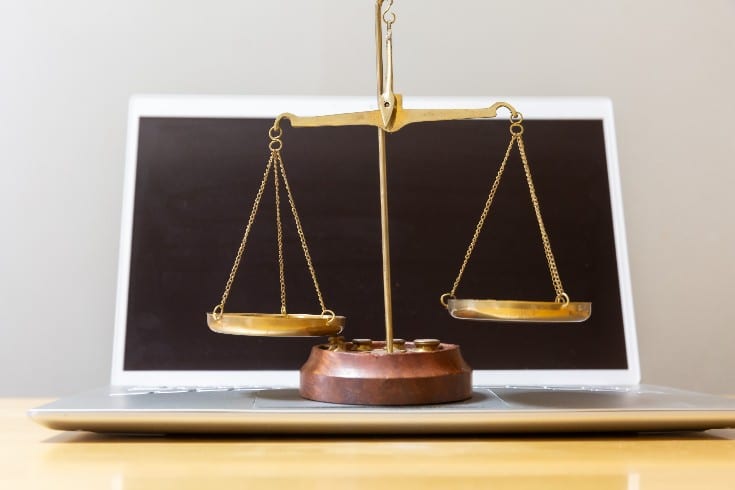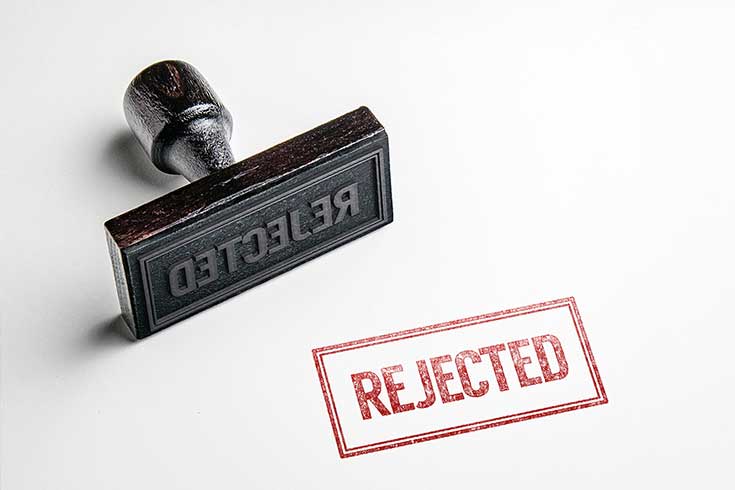'Is it a Violation of the 'Japanese Act against Unjustifiable Premiums and Misleading Representations' for YouTubers to Engage in Stealth Marketing? What's the Difference with Corporate Projects?'

On YouTube, a variety of videos are posted daily across different genres. Among these, you may have come across videos where YouTubers introduce products or apps. In these product or app introduction videos, there are instances where YouTubers personally use and recommend them because they think they are good, but there are also cases where they introduce them at the request of companies.
The issue here is when YouTubers, despite receiving a request from a company to introduce a product or app in exchange for economic compensation, hide this fact and introduce the product or app in their videos.
This kind of act is called “stealth marketing” (hereinafter referred to as “stema”), but is “stema” illegal? In this article, we will explain the legal issues with YouTubers’ stema.
In addition, we will also explain about so-called “corporate projects”, which are different from stema, where they clearly state that it is a request from a company and introduce products or apps.
What is Stealth Marketing?

Stealth Marketing, often shortened to “Stema” in Japanese, refers to the act of advertising in a way that consumers do not realize they are being advertised to. The term “stealth” implies secrecy or concealment, and thus, Stealth Marketing is a strategy where the fact that something is an advertisement or promotion is hidden from the consumer.
Similarly, the term “undercover,” which also implies secrecy or concealment, is used in combination with marketing to refer to Undercover Marketing.
Generally, Stealth Marketing can be divided into two types:
1. “Impersonation type” Stealth Marketing, where a business owner or someone who receives economic compensation from a business owner posts reviews on review sites, misleading consumers into believing that the reviews are posted by impartial third parties.
2. “Benefit provision concealment type” Stealth Marketing, where a business owner provides economic benefits to a third party to advertise or promote products or apps, but does not disclose this fact.
In relation to YouTubers, the second type of Stealth Marketing is often the main issue. Therefore, the following explanation will focus on this type of Stealth Marketing.
Issues with YouTubers Engaging in Stealth Marketing

When YouTubers introduce products or apps in their videos, they may be accused of engaging in stealth marketing. However, not everyone understands the potential problems that can arise from this practice. In this article, we will explain the legal issues that can occur as a result of stealth marketing.
Legal Issues – The Relationship with the Japanese Act against Unjustifiable Premiums and Misleading Representations
When YouTubers publish stealth marketing videos, the relationship with the Japanese Act against Unjustifiable Premiums and Misleading Representations (hereinafter referred to as the “Act”) becomes an issue.
What is the Act against Unjustifiable Premiums and Misleading Representations?
The Act against Unjustifiable Premiums and Misleading Representations is a law designed to strictly regulate false representations about the quality, content, price, etc. of goods and services. It aims to protect an environment where consumers can independently and rationally choose better goods and services by limiting the maximum amount of premiums, among other things.
The Relationship between the Act and Stealth Marketing
In the context of stealth marketing, the main issue is the relationship with the following provisions of the Act.
Misleading Superior Quality Representation
The Misleading Superior Quality Representation is stipulated in Article 5, Paragraph 1 of the Act.
“A representation that indicates that the quality, standards, or other content of goods or services is significantly superior to the actual ones, or that it is significantly superior to those of other business operators who supply the same or similar goods or services, which is likely to unfairly attract customers and hinder the independent and rational choice of general consumers.”
Article 5, Paragraph 1 of the Act against Unjustifiable Premiums and Misleading Representations
Specifically, this refers to the act of falsely advertising that the quality of a product or service is superior to the actual one, or falsely advertising that it is particularly superior to the products or services sold by competitors, even though it is not.
Misleading Favorable Representation
The Misleading Favorable Representation is stipulated in Article 5, Paragraph 2 of the Act.
“A representation that is likely to be misunderstood by general consumers as being significantly advantageous to the trading partner in terms of the price or other trading conditions of goods or services, or those of other business operators who supply the same or similar goods or services, and is likely to unfairly attract customers and hinder the independent and rational choice of general consumers.”
Article 5, Paragraph 2 of the Act against Unjustifiable Premiums and Misleading Representations
Specifically, this refers to the act of falsely advertising that the trading conditions of a product or service are more advantageous than they actually are, or falsely advertising that they are significantly cheaper than the products or services sold by competitors, even though they are not.
When does Stealth Marketing by YouTubers Violate the Act?

So, when does stealth marketing by YouTubers violate the Act? Some people seem to think that all stealth marketing violates the Act, but in fact, not all stealth marketing violates the Act. It only violates the Act when it falls under the prohibited acts stipulated in the Act. In other words, it is important to note that it does not immediately violate the Act just because it is stealth marketing.
In addition, in the introduction videos of products or apps by YouTubers, the introduction is often about the “quality, standards, and other content” of the products or apps, so we will focus on the relationship with the Misleading Superior Quality Representation.
In order to be considered as a Misleading Superior Quality Representation that violates the Act, it must meet the following requirements:
- (ⅰ) The introduction of products or apps by stealth marketing indicates that they are significantly superior to the actual products or apps, or (ⅱ) falsely indicates that they are significantly advantageous compared to the products or apps provided by competitors in a competitive relationship, and
- The introduction is likely to unfairly attract customers and hinder the independent and rational choice of general consumers.
In simple terms, if you post an exaggerated introduction video of a product or app on YouTube, you may face problems of violating the Act.
In the case of stealth marketing, the video posted on YouTube may not be recognized as an advertisement or commercial, so consumers may believe that “the YouTuber personally bought it and recommends it, so it must be good,” which increases the likelihood of violating the Act as a Misleading Superior Quality Representation.
On the other hand, in the case of corporate projects introduced later, consumers can recognize that the YouTuber is receiving economic benefits from the company, so they can understand that “this video is introducing in line with the company’s intentions because it is receiving economic benefits from the company.” Therefore, compared to stealth marketing, the likelihood of falling into a Misleading Superior Quality Representation is relatively low, and the likelihood of being judged as an act that violates the Act as a Misleading Superior Quality Representation is also low.
For example, suppose a YouTuber, at the request of a company, advertises and promotes a dating app that they have never used before through stealth marketing. Furthermore, in the introduction video of the app, they say, “I was able to meet various people using this site. I couldn’t meet anyone at all with other companies’ apps, but I was able to meet people using this app.”
However, in reality, if the app is full of so-called “bait” and you can’t meet anyone at all, or if you can meet more people with other companies’ apps, there is a possibility that it may violate the Act as a Misleading Superior Quality Representation.
Practical Issues
Even if stealth marketing does not violate the Act, there are practical issues. There is a public perception that stealth marketing is not good. Therefore, if it is revealed that it is stealth marketing, it is conceivable that the reputation of the YouTuber who posted the introduction video may be damaged. It is also conceivable that the reputation of the company that requested the introduction video may be damaged, and a boycott may be carried out by people who dislike stealth marketing.
As such, stealth marketing carries practical risks as well, so careful judgment is required when engaging in stealth marketing.
What is a Corporate Project?
A corporate project refers to an act where a YouTuber discloses that they are receiving financial compensation from a company, and introduces products or applications. When watching a YouTuber’s video, you may come across an introduction video that clearly states “Provided by ◯◯ Corporation”. Such introductions are referred to as corporate projects. They may also be referred to as tie-up projects or tie-up videos. With corporate projects, it is clear that the YouTuber is posting an introduction video at the request of a company. This allows consumers to think, “This is a corporate project, so I’ll watch the video for reference,” reducing the likelihood of being judged as a misleading representation.
Conclusion
We have discussed the legal issues associated with YouTubers engaging in stealth marketing.
With the recent surge in YouTube’s popularity, the relationship between companies and YouTubers has strengthened, leading to instances of stealth marketing. It is crucial for both the companies requesting promotional videos for products or apps and the YouTubers posting these videos to have a thorough understanding of stealth marketing.
Legal knowledge and expert judgment are required to determine whether stealth marketing falls under the category of misleading representation and violates the Japanese Act against Unjustifiable Premiums and Misleading Representations. Therefore, if you are a company or a YouTuber with concerns about stealth marketing, please consult with a lawyer.
Category: Internet





















